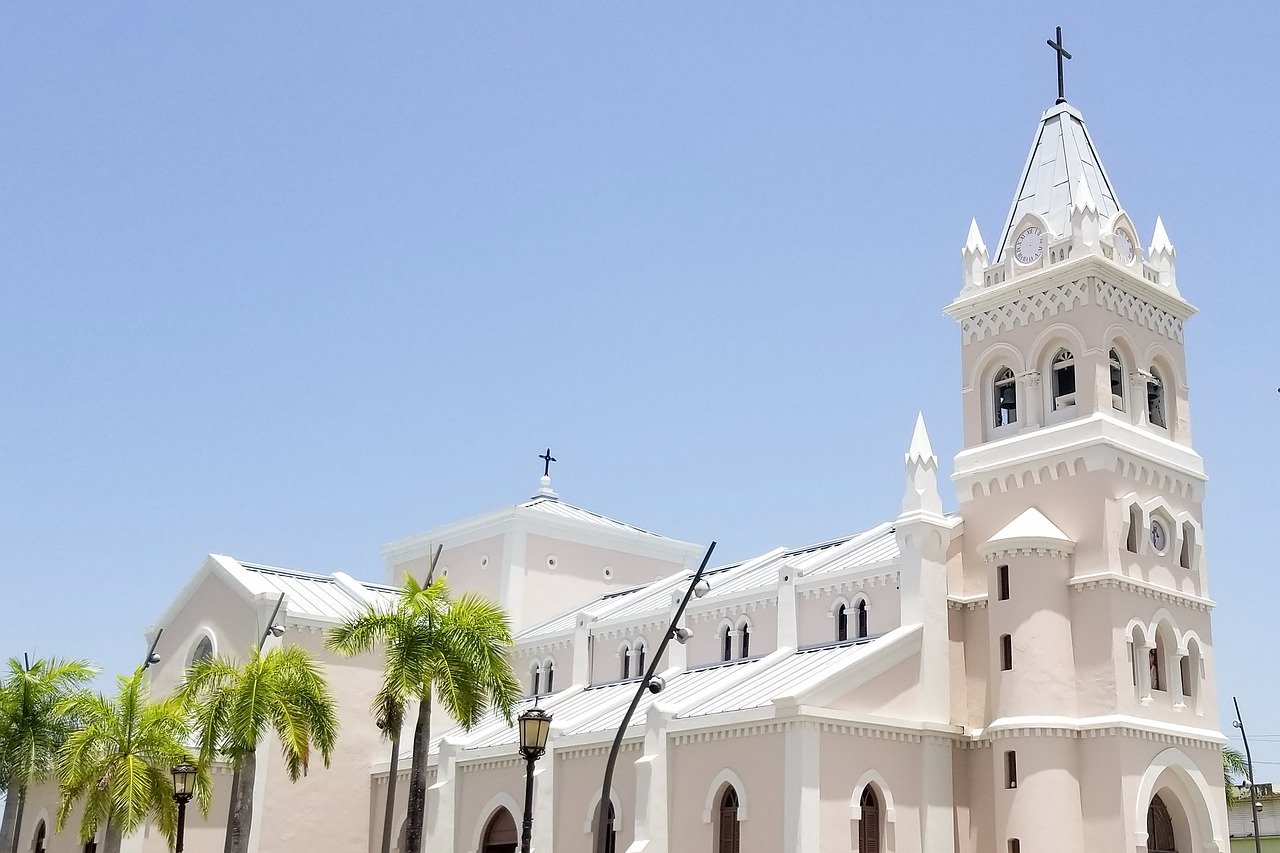It is nothing like you would imagine.
Easter celebration in the Caribbean is a melange of various cultures from historical pasts. The celebration across all the Caribbean islands is filled with unusual and not so unusual activities and of course food.
With the majority of the Caribbean island holidays being influenced by the Catholic church, brought over by years of European settlement and influence, Easter is considered a holy period of the year. Many islanders recognize this period as the remembrance of the crucifixion and the celebration of the resurrection of Jesus Christ.
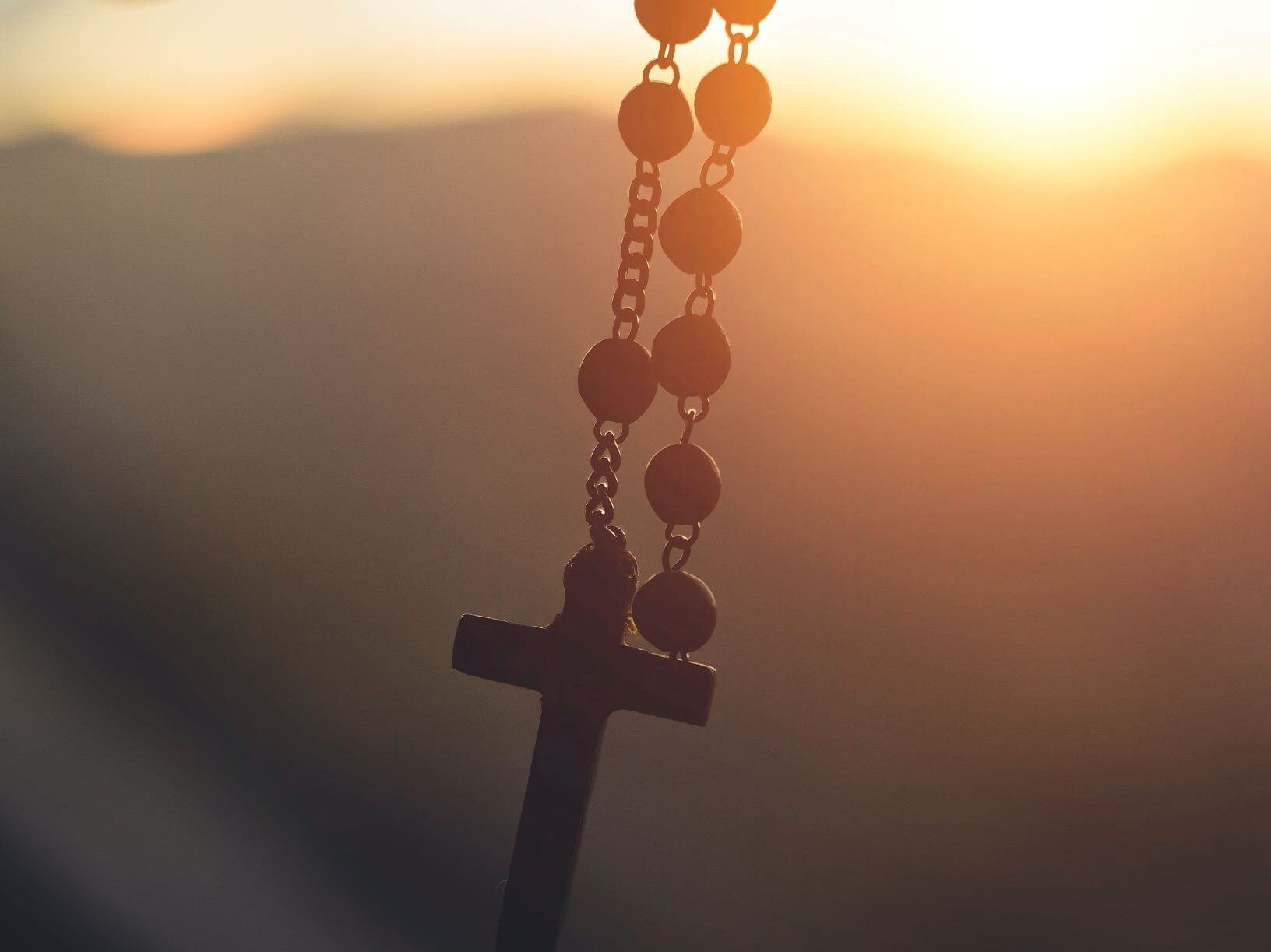
Naturally, Good Friday is a bank holiday in the Caribbean. Catholic worshippers attend mass in the morning in white and black clothing, expressing the solemnity of the cross and the burial of Jesus. The sale is alcohol is prohibited in some countries for 24 hours and all islanders avoid eating any red meats on this day. Devoted Catholics would avoid eating meat from Palm Sunday to Good Friday. Dishes such as codfish fritters (accras), steamed fish, and fried fish served with ground provisions like yams, dasheen, and sweet potatoes, and locally made fruit juice.
Many islanders are superstitious of Good Friday and many folklores state that manner of evil is out and about. As a result, Good Friday is a day of little activity and people avoid venturing to the beach during the day and going out at night.
Holy Saturday is a complete change of mood. It is a day filled with local produce shopping, slaughtering of pigs and cows in preparation for the celebration of Easter Sunday. Food is the center of everyone’s mind. Some islanders prepare black pudding (pigs’ blood heavily seasoned with scallion and boiled in the small intestine of the pig) and barbeque of the animal hearts and heavy alcohol consumption is common. There would also be activities such as crab hunting in the French territories, Martinique and Guadeloupe. There is a festival of crab racing after which the crabs are cooked in a rich soup.
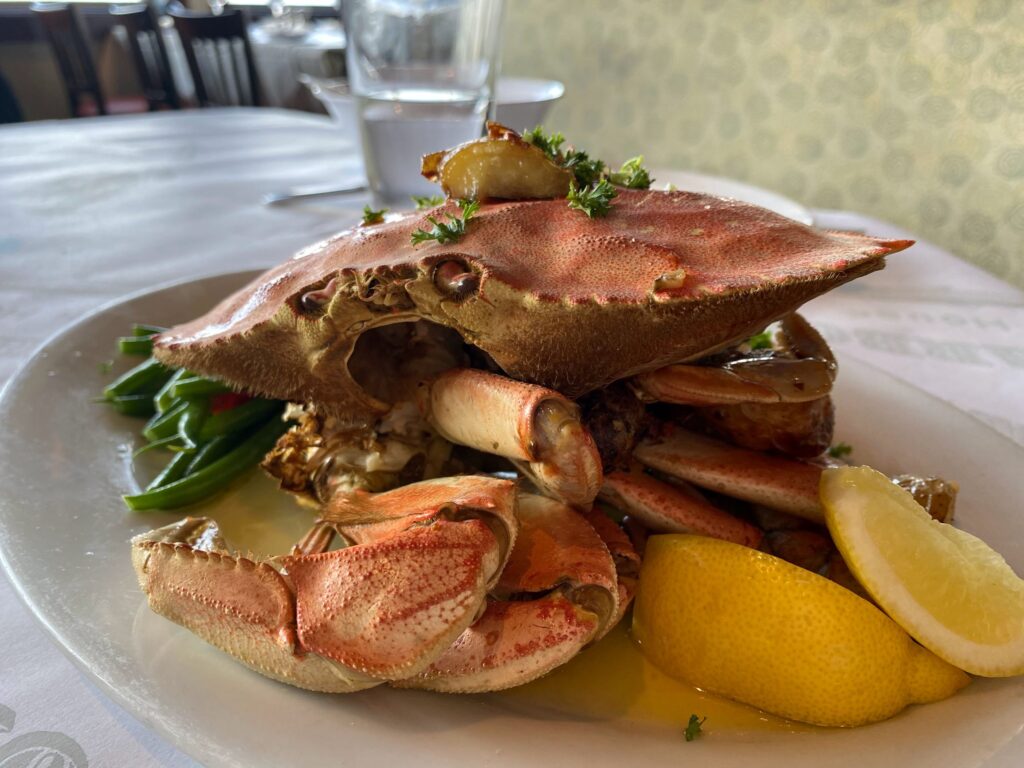
In Haiti, Easter is celebrated with a mix of Christian and Voodoo traditions. Rara music, bands, and visits to church for the Christians and Souvenance for those who practice Voodoo. Some worship the African spirits while others worship Christ. After attending church on Easter Sunday morning, there is a change in the mood of the people. Easter is a joyous feast of food and activity in celebration of the resurrection of Jesus Christ.
In Martinique, lamb dinners are usually served. Other Caribbean islands barbeque pork and stew beef. Collagen thick and flavorful pumpkin soup is made with cow heels and skin is served all throughout the day. Hot cross buns and spiced cakes are baked and served at local bakeries.
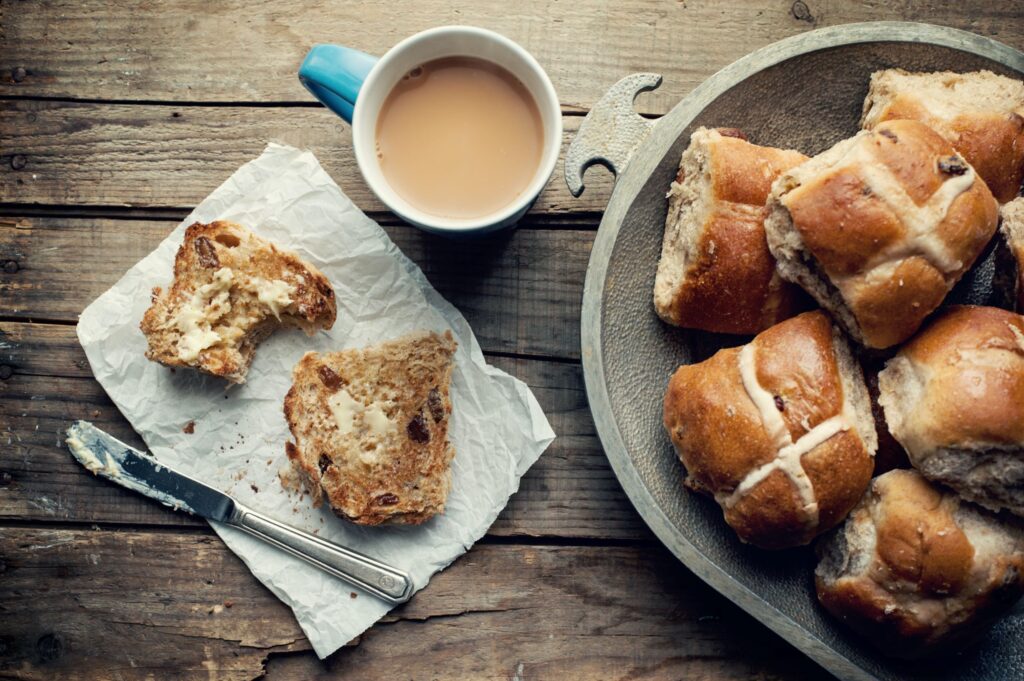
Crafting kites from household items and kite-flying is a tradition practiced during the Easter holiday. Kite makers in Barbados fashion their kites and then go to the beach to fly them. Families would take the opportunity to spend the day together at the beach eating and drinking while flying kites which is recognized as a symbol of the resurrected Christ. In other islands, just spending the day at the beach with food and drinks is the usual activity of the day.
In the Caribbean islands with stronger Catholic influence, every Sunday is a bank holiday so islands observe a bank holiday on Monday- Easter Monday. It is a day filled with heavy partying and beach vibes. Almost everyone barbeques, bar-hop, and engage in island road trips to visit various communities. Even islanders who don’t observe Easter would join in on the fun and you can too, no matter which island you choose for your Easter destination.
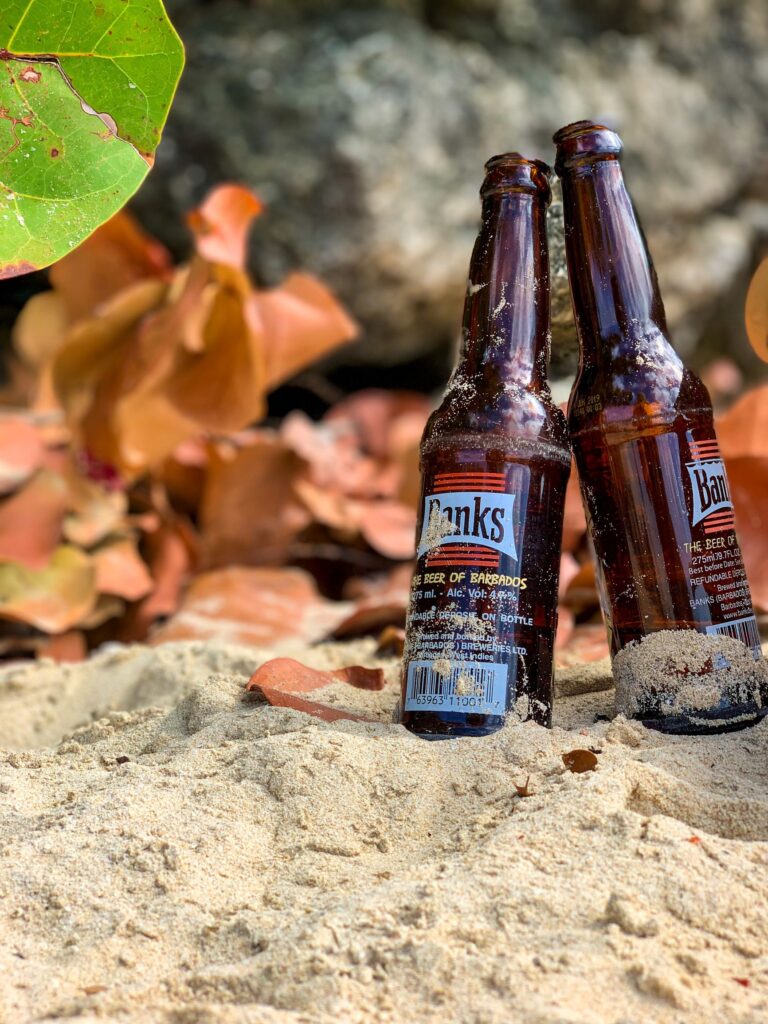
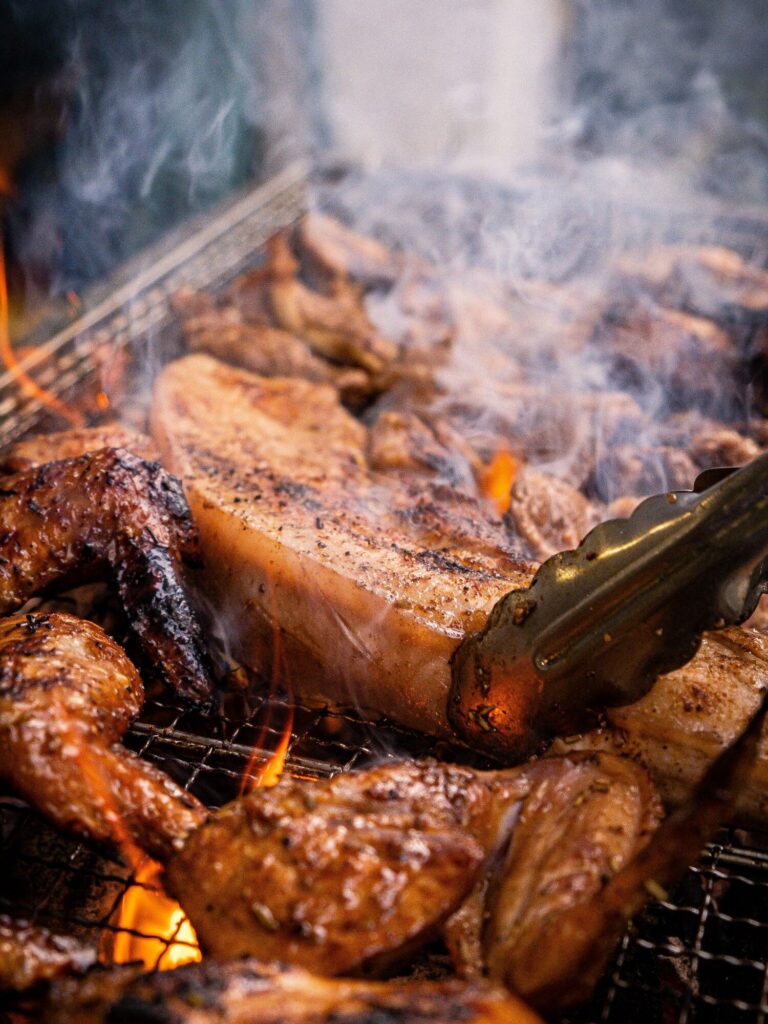
You can even celebrate a bit of Caribbean Easter at home with Caribbean Cow Heel Soup. It may sound challenging by Jirie Caribbean will show you how. It is a simple recipe celebrating the party of herbs and spices across the region. This recipe can be customized with your favorite meats, poultry, seafood, and vegetables. If you like the idea of cow heels don’t worry… we’ve got you covered.
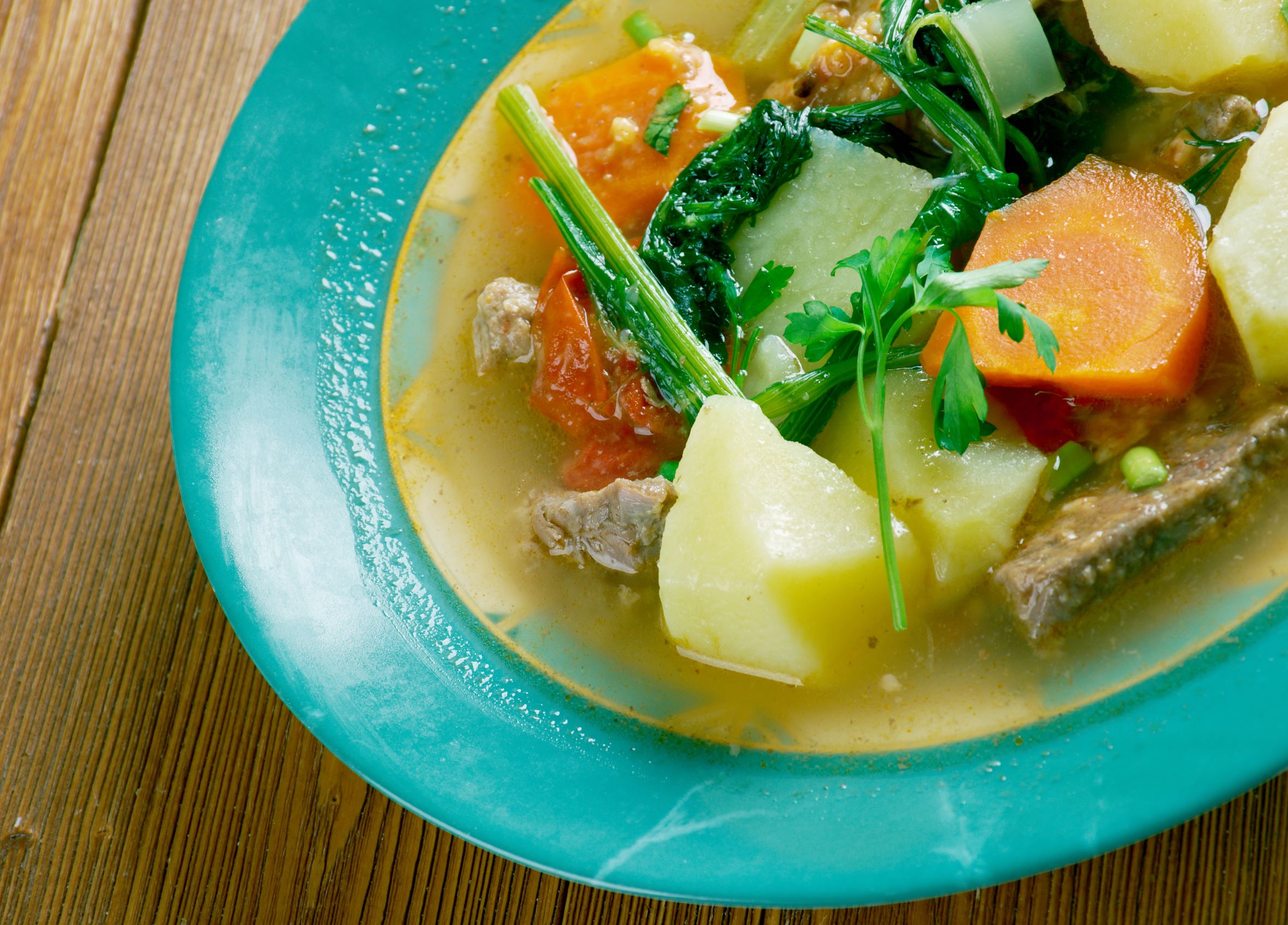
Caribbean Cow Heel Soup (6 quarts)
Equipment
- Pressure Cooker
Ingredients
- 2 lbs cow heel chopped
- 2 large carrots sliced, 1-inch rounds
- 1 lbs pumpkin chopped, 2-inch cubes
- 2 large potatoes chopped, 2-inch cubes
- 2 whole sweet corn on the cob cut into thirds
- 1 cup onions chopped
- 3 springs fresh thyme
- 1 cup celery stock chopped
- 1 tbsp Jirie's Caribbean Spice Seasoning
- ½ tbsp Jirie's Jamaican Jerk Seasoning
- 2 tbsp vegetable oil
- 2 cups Penne pasta (some countries use dumpling instead)
- salt to taste
Instructions
- In the pressure cooker, add vegetable oil and saute onions, celery, and half of the thyme until the onion is translucent and the thyme is fragrant.
- Add the cow heel and saute for 5 minutes. Add Jirie Jamaican Jerk Seasoning and salt to taste.
- Add 5 cups of water and cook, seal the lid of the pressure cooker and on medium heat, cook the cow heel under pressure for 30 minutes.
- Let the pressure cooker cool down according to the cooker's user manual. Uncover to release the steam.
- Add carrots, potatoes, sweet corn, and pumpkin with enough water to cover everything.
- Bring to a boil until vegetables are partially cooked then add the remaining thyme and Jirie's Caribbean Spice seasoning.
- Throw in the pasta and cook until fully cooked
- Serve hot.


